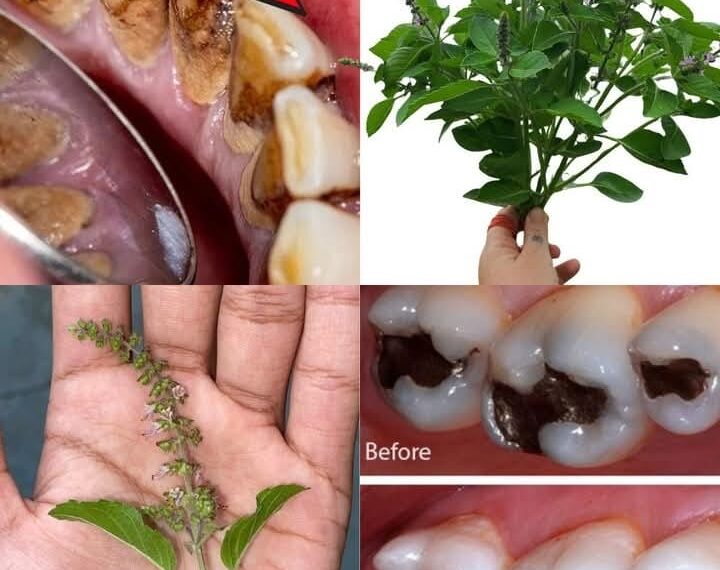For centuries, Holy Basil (Ocimum sanctum) — known in India as Tulsi — has been revered not only as a sacred plant in Hindu tradition but also as a potent medicinal herb in Ayurveda. While it’s commonly used to boost immunity and reduce stress, recent scientific studies have revealed another fascinating benefit of Tulsi: its powerful impact on oral health.
Let’s explore how this humble plant can help prevent cavities, fight gum disease, eliminate bad breath, and strengthen your teeth — all backed by modern research.
🌿 1. Tulsi’s Medicinal Power: Nature’s Antibacterial and Antifungal Shield
Tulsi is rich in eugenol, ursolic acid, and carvacrol — natural compounds known for their antimicrobial and anti-inflammatory properties.
According to a 2016 study published in the Journal of Oral Biology and Craniofacial Research, Tulsi extracts demonstrated significant antibacterial activity against Streptococcus mutans, the main bacteria responsible for dental cavities.
👉 This means Tulsi can naturally reduce plaque formation, protect enamel, and limit bacterial growth that leads to tooth decay.
😁 2. Gum Health: Fighting Gingivitis and Periodontitis Naturally
Gum inflammation (gingivitis) and gum infections (periodontitis) are caused by bacterial buildup and weakened oral immunity. Tulsi’s anti-inflammatory and antioxidant effects can help combat these problems.
A study in the Journal of Indian Society of Periodontology (2014) found that Tulsi mouthwash significantly reduced plaque and gingival index scores after just 15 days of use, performing almost as effectively as chlorhexidine, a common chemical mouthwash — but without side effects like staining or altered taste.
✅ How it helps:
- Reduces gum swelling and redness.
- Strengthens gum tissue and prevents bleeding.
- Promotes faster healing of oral sores and ulcers.
🌬️ 3. Say Goodbye to Bad Breath (Halitosis)
Bad breath is often caused by bacteria breaking down food particles and releasing foul-smelling sulfur compounds. Tulsi’s essential oils and natural antiseptic properties neutralize these odors at the source.
Moreover, Tulsi promotes salivation — a key factor in maintaining oral moisture and washing away bacteria.
A 2019 comparative study in the International Journal of Herbal Medicine confirmed that participants who used Tulsi-based mouthwash twice daily showed a notable reduction in oral malodor compared to the control group.
💡 Tip: Chewing a few fresh Tulsi leaves or rinsing with Tulsi tea can instantly refresh your breath and leave your mouth feeling clean and energized.
💪 4. Strengthening Teeth and Enamel
Calcium and phosphorus are crucial for maintaining strong enamel, but acidic foods and bacterial acids erode it over time. Tulsi’s alkaline nature helps balance the mouth’s pH and protects enamel from acid damage.
Its rich blend of antioxidants, especially rosmarinic acid and flavonoids, also help strengthen oral tissues and support natural remineralization of teeth.
Some herbal formulations now include Tulsi extract to fortify enamel and reduce tooth sensitivity.
🌱 5. A Holistic Way to Use Tulsi for Oral Care
You can incorporate Tulsi into your daily oral hygiene routine in several simple ways:
TO CONTINUE READING THE ARTICLE PLEASE SEE PAGE 2




